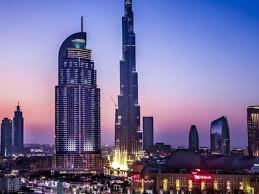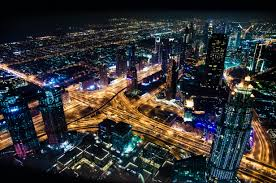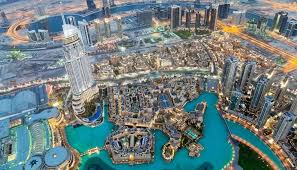
Dubai, a city once known only for its skyscrapers and luxury, is now taking bold steps toward a more sustainable and smarter future. As part of the United Arab Emirates’ (UAE) national vision to reduce carbon emissions and embrace digital innovation, Dubai is investing heavily in smart city technologies. These efforts aim to improve the quality of life for its residents, protect the environment, and ensure the city is ready for the challenges of the future.

A smart city uses digital technologies—like sensors, artificial intelligence (AI), and the Internet of Things (IoT)—to manage its resources and services better. This includes transportation, energy, water, waste, and more. In a smart city, data is used to make real-time decisions that improve efficiency and reduce environmental impact.
Dubai is leading the way in the Middle East with its smart city vision. By focusing on sustainability, the city hopes to become one of the most advanced and eco-friendly urban areas in the world.

Dubai’s smart city journey officially began in 2013 with the launch of the Smart Dubai initiative. This program, led by the Dubai government, aims to make Dubai the “happiest and smartest city on Earth.”
Some key goals of the initiative include:
Transportation is one of the biggest contributors to pollution. Dubai is working hard to change that. The Dubai Roads and Transport Authority (RTA) has introduced many smart and green transportation solutions.
These include:
Perhaps most exciting is the introduction of air taxis—flying cars that could soon become a reality in the city’s skies, offering zero-emission travel options.

Dubai understands that energy and water are limited resources. That’s why smart systems are now in place to manage usage more efficiently.
With these efforts, Dubai is not only reducing its environmental impact but also lowering costs for businesses and residents.
Waste management is another key area where smart technology is making a difference.
These steps aim to achieve zero waste to landfill by 2030—a bold but achievable goal.
A smart city is also a digital city. Dubai has made significant progress in becoming fully digital and paperless.
By 2025, Dubai aims to become 100% paperless, making government services more efficient, transparent, and eco-friendly.
Dubai is now home to some of the world’s smartest buildings.
Smart infrastructure doesn’t just help the environment—it also improves living standards and lowers utility bills.
Data is the fuel that powers smart cities. In Dubai, millions of data points are collected every day from sensors, cameras, and digital services.
These systems help Dubai stay ahead of the curve in both sustainability and technology.
While the progress is impressive, there are challenges. High costs, cybersecurity risks, and the need for skilled workers are all barriers to faster implementation. However, Dubai’s strong leadership, investment power, and global partnerships are helping to overcome these obstacles.
Dubai’s smart city initiatives are setting a global example. By combining sustainability with advanced technology, the city is not only preparing for the future—it is shaping it.
With smart transportation, energy, buildings, and waste management, Dubai is showing the world that eco-friendly living and innovation can go hand in hand.
For residents, this means a cleaner, safer, and more connected city. For the world, Dubai offers a blueprint for how urban centers can thrive in a time of climate change and digital transformation.
Read More:- Shobha Realty Launches Its Most Luxurious Project Yet—Full Details Inside 2025
